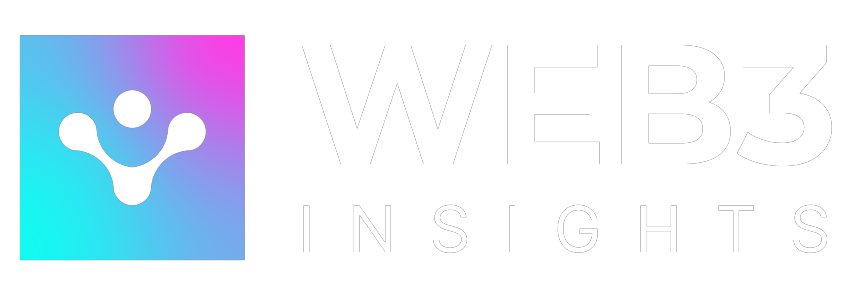Imagine a world where gaming is more than just a hobby. A world where your time spent battling dragons, completing quests, or trading digital assets entertains and earns you a real income. Welcome to play-to-earn (P2E) gaming, a revolutionary concept in the Web3 ecosystem. Now, add artificial intelligence (AI) agents to the mix, and you get an exciting glimpse into the future of gaming.
AI agents are significantly transforming the landscape of play-to-earn (P2E) games by enhancing gaming experiences and creating opportunities for passive income. Whether you’re a casual gamer or a hardcore enthusiast, these intelligent tools are reshaping how we approach P2E games. In this article, we’ll explore how they work in P2E games, their potential benefits, and the challenges they bring along.
What Are AI Agents in Gaming?
AI agents are like digital assistants designed to think and act within the gaming ecosystem. Unlike traditional gaming bots that follow pre-programmed instructions, they use machine learning to adapt and make decisions based on real-time data. They can analyze gameplay patterns, predict outcomes, and optimize actions to achieve specific goals, all without constant human intervention.
For instance, in a P2E game where players earn rewards by farming resources or completing repetitive tasks, an AI agent can step in to handle these activities efficiently. These agents don’t just mimic player actions; they learn from their environment, improve over time, and execute strategies that maximize rewards.
Enhanced Gaming Experience
AI agents are game-changers when it comes to improving the overall player experience. Here are some key ways they make gaming more enjoyable and efficient:
- Dynamic NPC Behavior: AI agents make non-player characters (NPCs) more realistic and interactive. By employing advanced algorithms, NPCs can learn from player interactions, adapt to strategies, and provide a more engaging and less predictable gameplay experience. This is evident in games like those powered by Google DeepMind’s SIMA, where AI can respond to natural language instructions and exhibit high-level strategic planning.
- Procedural Content Generation: AI can generate game content dynamically, such as levels, quests, or even in-game music, tailored to the player’s behavior. This not only keeps the gameplay fresh and engaging but also reduces the workload on developers by automating content creation.
- Adaptive Difficulty and Player Experience Modeling: They analyze player performance and emotional state to adjust game difficulty or provide personalized experiences. This dynamic difficulty balancing ensures that the game remains challenging yet not frustrating, enhancing player retention and satisfaction.
- Real-Time Game Economy Adjustment: AI can manage in-game economies by adjusting resource availability, item rarity, and market conditions. This can be done in real-time based on player behavior.
- Enhanced Storytelling: AI agents can create dynamic storylines based on player choices, making the narrative experience more immersive. By adapting the plot to align with individual player actions, AI ensures every gamer feels like the hero.
Creating Passive Income
One of the most exciting aspects of AI agents in P2E games is their potential to generate passive income. Here’s how:
- Autonomous Play: Some P2E games allow AI agents to play on behalf of users, participating in matches or economic activities. For example, GOAT Gaming’s AlphaGOATs are AI agents designed to compete in games and earn rewards for players 24/7, essentially creating a form of passive income where players can watch their agents play.
- Efficient Resource Management: These agents excel at managing virtual assets like NFTs or in-game currencies by analyzing market trends. They can prioritize tasks that yield the highest rewards, ensuring efficient use of time and effort. For instance, in a game where players earn tokens by staking assets, an AI agent could continuously monitor the market to stake and withdraw at optimal times.
- Content Creation for Monetization: AI agents can create game missions that players can engage with, which can be monetized through player participation.
- Economy Balancing: By autonomously balancing the game economy, AI agents ensure that earning opportunities are consistent and fair. This balancing act can lead to more stable passive income streams for players.
- In-Game Rentals: Players can utilize AI agents to rent out in-game assets such as land, rare items, or equipment. The AI can manage rental agreements, ensuring timely returns and fair pricing, while players earn income effortlessly.
Boosting Game Economies
AI agents don’t just benefit individual players; they also contribute to the overall health of game economies. Here’s how:
- Increasing Liquidity: In-game marketplaces thrive on activity. AI agents can actively trade assets, ensuring a steady flow of transactions that keeps the economy vibrant.
- Encouraging Fair Competition: By leveling the playing field, AI agents make it possible for more players to compete effectively. This fairness attracts a broader audience, strengthening the game’s community and economy.
- Supporting Developers: Developers can design games with built-in AI agent support, encouraging players to engage more deeply with the game. This increased engagement can lead to higher revenues through transaction fees, in-game purchases, and token sales.
- Real-Time Analytics: They provide valuable insights into player behavior and market trends. Developers can use this data to tweak game mechanics, introduce new features, or improve overall user experience.
The Role of AI in Guilds and Communities
Guilds and gaming communities are integral to the P2E ecosystem, and AI agents are proving to be valuable allies in these spaces:
- Guild Management: AI agents can handle administrative tasks for guilds, such as tracking member contributions, managing resources, and organizing events. This automation allows guild leaders to focus on strategy and community building.
- Asset Sharing: Many P2E guilds lend in-game assets to members in exchange for a share of their earnings. They can streamline this process by automating asset allocation, tracking usage, and ensuring fair distribution of rewards.
- Coordinated Gameplay: In team-based games, AI agents can assist with coordinating member actions, ensuring that guilds work together efficiently to achieve shared goals.
- Onboarding New Players: They can simplify onboarding processes by providing tutorials, guiding new players through game mechanics, and helping them start earning quickly.
Challenges and Risks
While AI agents offer numerous benefits, they also come with challenges that must be addressed:
- Ethical Concerns: Overuse of them can lead to imbalances in gameplay. If some players gain an unfair advantage through advanced AI tools, it could discourage others from participating.
- Reduced Player Engagement: Automating too many tasks might diminish the sense of accomplishment and fun that comes from playing a game manually. Developers need to strike a balance between automation and active player involvement.
- Security Risks: As AI agents become more sophisticated, they could be used maliciously to exploit game systems. Ensuring robust security measures is essential.
- Regulatory Challenges: The integration of AI in gaming might lead to legal and regulatory issues. Policymakers and developers must work together to address these challenges.
Future Trends and Innovations
The integration of AI agents in P2E games is still in its early stages, but the future holds immense possibilities:
- Smarter AI Agents: As AI technology evolves, agents will become even more intelligent and versatile, capable of handling complex strategies and adapting to new game mechanics.
- Metaverse Integration: They will play a significant role in the metaverse, assisting users in navigating interconnected virtual worlds, managing digital assets, and participating in immersive experiences.
- AI-Driven Tournaments: Platforms could host tournaments where AI agents compete against each other or human players, with spectatorship built into the game economy.
- Collaborative AI: Developers might create AI agents that can collaborate with players in real-time, offering guidance or enhancing gameplay without taking full control.
- Decentralized AI Models: The use of blockchain technology to decentralize AI models could increase transparency and trust.
Conclusion
The integration of AI agents in P2E games not only enhances the gaming experience by making it more immersive but also opens up new avenues for income. This synergy between AI and blockchain technology could redefine how gamers interact with and benefit from game economies.
As P2E gaming continues to grow, the partnership between players and AI agents will deepen, offering exciting opportunities for both casual gamers and dedicated enthusiasts. Whether you’re looking to earn, or simply enjoy the ride, AI agents are here to make your gaming journey very rewarding.









